Module 10 – Support Network

LLM Online
©Arlene R. Taylor, PhD
Module 10 – Support Network
Sometimes you just need to talk about something; not to get sympathy or help, but just to kill its power by allowing the truth of things to hit the air.
—Karen Salmansohn
To Begin
 Weigh yourself in your underwear or clothes that you will wear each week on the same scales—no belt, shoes, sweater, or jacket.
Weigh yourself in your underwear or clothes that you will wear each week on the same scales—no belt, shoes, sweater, or jacket.- Measure your waist around the level of your belly button.
- Calculate your Body Mass Index using the BMI chart. Use your height in centimeters.
- Record data on the Weekly Comparison form.
- Write in your own goal on the Daily Goals form.
- Post it where you can see it easily. Record your data each day.
Good friends sure make their presence known at times of strife and challenging times and are revealed for their true support when all others seem to vanish. It is one thing to say you are a true friend and quite another to actually step up to the plate when times get tough.
—Catherine Pulsifer
Overview
- John Donne was an English poet, scholar, soldier, and secretary who reluctantly became Dean of St. Paul’s Cathedral in London, ordered to do so by the King. During a period of time when he was seriously ill, Donne wrote Devotions upon Emergent Occasions, published in 1624. One of those meditations (#17), included these words: No man is an island, entire of itself. Every man is a piece of the continent, a part of the main.
 (Later on, it would become the poem “No Man Is an Island.”) It would be interesting to know what happened during his illness that prompted John Donne to figure out that the human brain—a relational organ—does not function particularly well in isolation. Indeed, nearly 400 years after he penned those words, there seems to be some consensus that, whatever else the human brain is, it has three key descriptors: sexual, spiritual, and
(Later on, it would become the poem “No Man Is an Island.”) It would be interesting to know what happened during his illness that prompted John Donne to figure out that the human brain—a relational organ—does not function particularly well in isolation. Indeed, nearly 400 years after he penned those words, there seems to be some consensus that, whatever else the human brain is, it has three key descriptors: sexual, spiritual, and
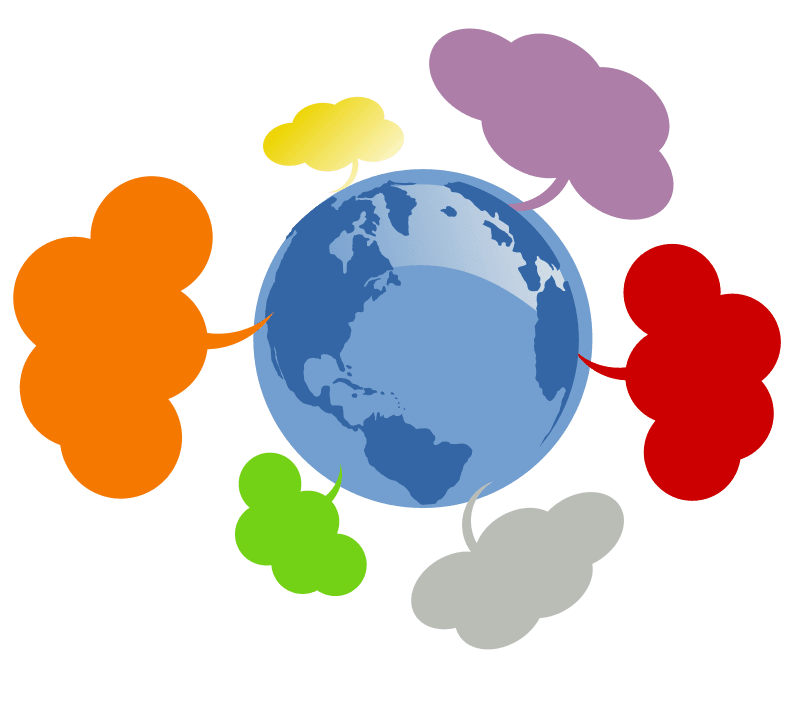 A support network can be defined as a group of people—friends, family, and associates—who provide emotional and practical encouragement and/or mentoring to an individual in difficulty.
A support network can be defined as a group of people—friends, family, and associates—who provide emotional and practical encouragement and/or mentoring to an individual in difficulty.
Some have one main support network; some, none. Others have several small support networks and access them at different times or for different reasons. These may include relatives, friends, school colleagues, work associates, church affiliates, travel or hobby groups, musical associates, a community choir, or others.Make no mistake: if you want to make it as an entrepreneur, you simply cannot do it on your own. This is a nonnegotiable!
―Amber Hurdle
- Avoid becoming exhausted from involvement with more support networks than you really need. Even a seasoned juggler can only keep a specific number of balls in the air are one time. Select the core members of your support network wisely and intentionally. (Join the support network of others—with care.) Select people who are smart, affirming, upbeat, reciprocal, and on a Longevity Lifestyle.
Reinforcing another’s efforts increases your likelihood of success. Be brave enough to let go of any who are abusive or who drag you down. Become the human being you would like to have as your best friend. In becoming that person, you will more naturally be attracted to and become attractive to others who are on a similar developmental quest. The people you hang out with matter!It is easy for people to embrace you at the finish line; remember who ran the race with you.
―Johnnie Dent, Jr.
A true friendship is determined by how well our friends stand by and support us in our toughest and most distressful times and, conversely, how well we support them in their difficult situations.
―Nozer Kanga
Reminder: Drink a glass of water. View the Educational Video. Stand and walk in place for at least a portion of the video to increase blood flow to your brain.
Science in a Nutshell
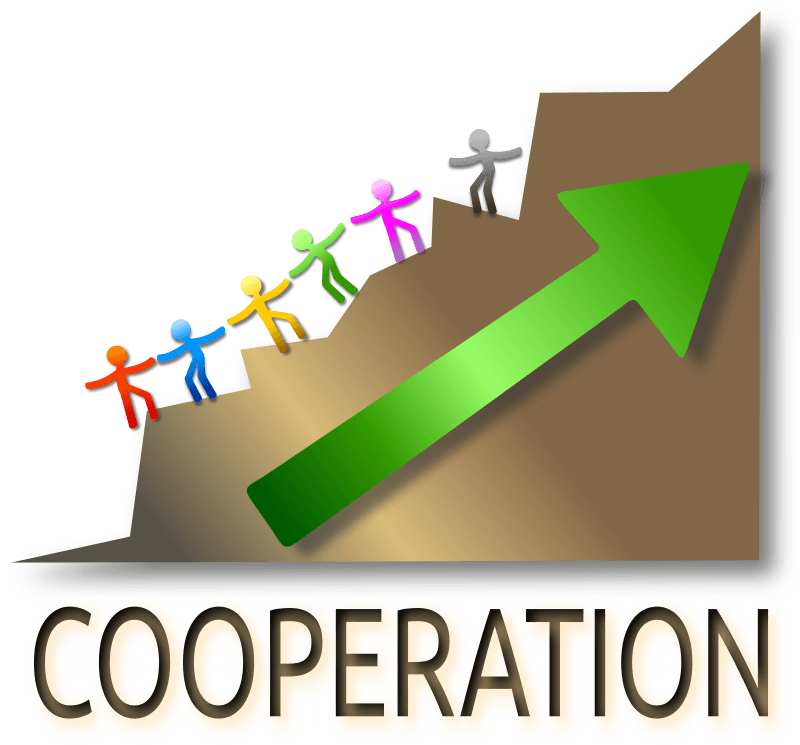 Studies have shown the benefits of dev eloping a support network of positive, encouraging individuals. In general, of course, but especially whenever you undertake something new that is intended to improve your life. For example, continuing your education, a major move to another location, embracing a healthier lifestyle, getting and keeping your weight in an optimum range, starting a new career,
Studies have shown the benefits of dev eloping a support network of positive, encouraging individuals. In general, of course, but especially whenever you undertake something new that is intended to improve your life. For example, continuing your education, a major move to another location, embracing a healthier lifestyle, getting and keeping your weight in an optimum range, starting a new career,
being fired or laid off, stopping smoking (or any addictive behavior), needing to reinvent yourself and/or your small business after an economic downturn, etc. A support network’s advantage can also include anything which might take you, at least temporarily, out of your comfort zone, e.g., being diagnosed with a chronic illness, cancer, or other life-threatening scenario.Encouragement makes us believe we can move forward, but it also gives us the power to help others move forward.
―Cathy Burnham Martin Large-scale studies have linked positive health-related contributions made by support networks:
Large-scale studies have linked positive health-related contributions made by support networks:
- Higher levels of natural killer cells (reflecting stronger immune systems) in people with certain cancers.
- Increased mobility and reduced swelling of joints in those with a diagnosis of rheumatoid arthritis.
 Lower Caesarean-section rates, shorter labor time, and decreased need for anesthesia in women who have a female companion experienced in labor and delivery (a doula) accompany them throughout labor.
Lower Caesarean-section rates, shorter labor time, and decreased need for anesthesia in women who have a female companion experienced in labor and delivery (a doula) accompany them throughout labor.- Reduced risk of developing depression after experiencing a stroke.
- Lower risk of developing heart problems and dying prematurely—especially in people who have a spouse or other confidant.
- Higher levels of natural killer cells (reflecting stronger immune systems) in people with certain cancers.
- The success or failure of your support network hinges on several factors:
- Your definition of a support network and your expectations of what this can do for you, and whether you perceive this as one-way street in your direction or as a set of balanced and reciprocal relationships.
 Your mind-set and self-talk style and your personal level of actualization, differentiation, along with your level of Emotional Intelligence skills, and so on.
Your mind-set and self-talk style and your personal level of actualization, differentiation, along with your level of Emotional Intelligence skills, and so on.- Your own emphasis on self-care—or lack thereof—and whether you understand that success begins at “home” with how you live your life. This includes whether you are choosing to live a Longevity Lifestyle and are aiming toward being the best you can be for as long as possible.
- Your goals for developing a support system. If you perceive a support system as consisting of a few select individuals who
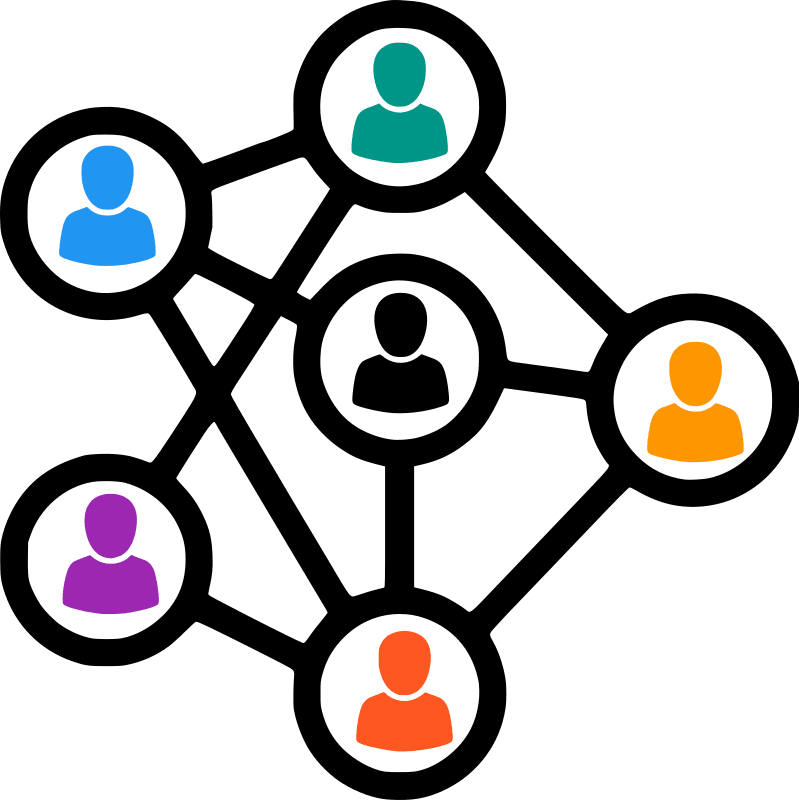 provide emotional and practical help to each other when one is in difficulty, you will likely look for those who have abilities you lack and elicit their help in developing such skills at some level for yourself.
provide emotional and practical help to each other when one is in difficulty, you will likely look for those who have abilities you lack and elicit their help in developing such skills at some level for yourself.
- Your definition of a support network and your expectations of what this can do for you, and whether you perceive this as one-way street in your direction or as a set of balanced and reciprocal relationships.
To become a better you, remember to be grateful to people who have contributed to making you who you are today.
―Israelmore Ayivor
Matter of Fact
1st
Network. A Longevity Lifestyle key strategy involves having a support network. No human being is completely successful on his or her own. No one brain knows everything or has developed all the necessary skills to be successful.  Brains need other brains. A support network of a few select individuals who provide emotional and practical help to another in need is invaluable—although often unrecognized, undervalued, and sometimes even pooh-poohed. At times such a perspective may display itself as either making light of the concept or showing downright contempt. Oscar Aulig Ice has pointed out that it is important to build a strong network, both in your professional and personal life. Once you retire, of course, you may need only one personal support network.
Brains need other brains. A support network of a few select individuals who provide emotional and practical help to another in need is invaluable—although often unrecognized, undervalued, and sometimes even pooh-poohed. At times such a perspective may display itself as either making light of the concept or showing downright contempt. Oscar Aulig Ice has pointed out that it is important to build a strong network, both in your professional and personal life. Once you retire, of course, you may need only one personal support network.
| Do not wait until you desperately need a social network to begin developing one. ―Frank Sonnenberg |
This does not mean you need dozens of people in your network(s); rather, a few human beings who--although not perfect—care enough about you to “watch your back,” as the old saying goes. Individuals with whom you can discuss important concepts that relate to you and your life, that lessen the strength of specific problems or concerns through problem-solving options, or kill the power of the rhetoric simply by allowing the truth of things to (as Salmansohn puts it) “hit the air.”
Male brains often prefer to process ideas and information silently and internally and may only be willing to talk about them after coming to a conclusion—– if they discuss it at all. This can be a bit shortsighted, especially if they have relatively little information about the problem or condition. Female brains tend to process ideas and information more effectively by simply starting to talk about it aloud with a close family member or friend.
if they discuss it at all. This can be a bit shortsighted, especially if they have relatively little information about the problem or condition. Female brains tend to process ideas and information more effectively by simply starting to talk about it aloud with a close family member or friend. ![]() In that process, the female will come often come to a conclusion that works for her—something that might not occur without “hearing what I think,” as one woman expressed it.
In that process, the female will come often come to a conclusion that works for her—something that might not occur without “hearing what I think,” as one woman expressed it.
Surround yourself with people who don't just ask how you are doing. Surround yourself with people who make an effort to make sure they are part of the reason you are doing so well.
―Jennae Cecelia
2nd
Success. Social networks are important for long-term success. You need a few supportive and trusted individuals in your life. (The key word here is supportive.) Individuals not on a similar journey rarely value what you are doing. 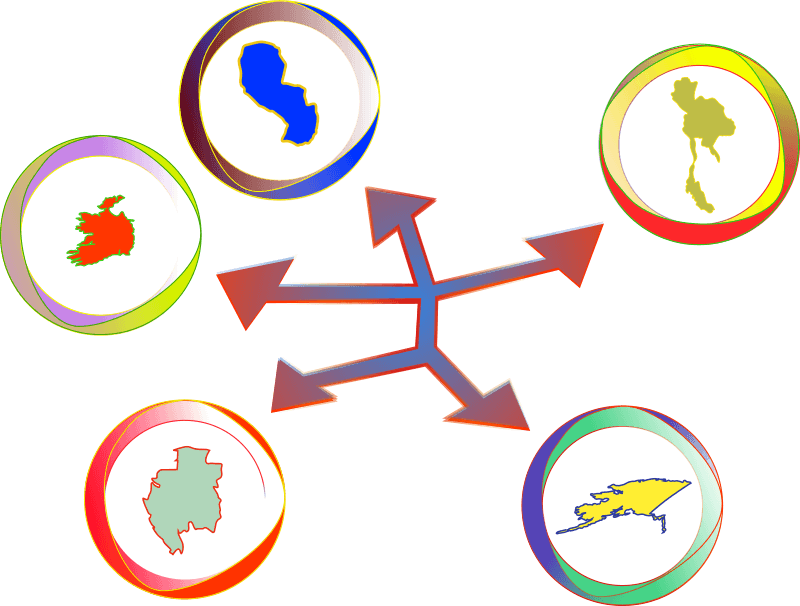 Those who are not sufficiently actualized to support your health choices (especially when they make unhealthy decisions for themselves) can derail you. According to Jim Rohn, you gradually become the average of the five people you hang out with most—yourself being one of them. Ask yourself, “Is that whom I want to be?” Within three years, you are at high risk for picking up the habits of those with whom you associate most—especially in the areas of happiness, smoking, health, and obesity. To be successful, select your close friends with care. Be brave enough to disconnect from those who are abusive or drag you down. It matters to your health and potential longevity.
Those who are not sufficiently actualized to support your health choices (especially when they make unhealthy decisions for themselves) can derail you. According to Jim Rohn, you gradually become the average of the five people you hang out with most—yourself being one of them. Ask yourself, “Is that whom I want to be?” Within three years, you are at high risk for picking up the habits of those with whom you associate most—especially in the areas of happiness, smoking, health, and obesity. To be successful, select your close friends with care. Be brave enough to disconnect from those who are abusive or drag you down. It matters to your health and potential longevity.
As water seeks its own level, so do brains and behaviors. Aim higher and you will likely get farther. Environment is important. Make your environment work for you and what you want to accomplish in life. If water is now your beverage of choice, stay away from bars. If you have replaced gambling (or other addictive behaviors) with healthier behaviors, avoid places where you are at high risk of running into the old behaviors. If you have stopped being promiscuous, stay out of sex clubs.
| By yourself you are but one . . . together we are a unit. ―Rehan Khan |
Remove everything from your home, office, and vehicle that you no longer choose to eat or drink—or sniff or snort or smoke. It is often preferable to invite people to your own home where you have more control over the environment. If you do go to their place, make careful food and beverage selections and be alert to portion sizes. Offer to bring veggies, hummus, and baked crackers to add to the spread. As you role model an individual who looks good, feels better, and thinks more clearly, others may also choose to get on board!
The thing to remember with support is that true support always brings you back to your own sense of agency and confidence, not your need to rely on something or someone outside of you. A person who offers you support with integrity does so in a way that makes space for your fear and insecurities and doubts, whether rational or not, but does not enable them.
―Jay Fields
Reminder: Drink a glass of water to hydrate your brain.
3rd
Balance. Be clear about what a support system means to you. If you believe that a support system is designed to provide you with unpaid volunteers who ![]() will pick up tasks that you do not want to do (albeit ones you should be doing for yourself), you will likely attract people who are codependent and/or who are trying to earn your gratitude by taking care of you. This will do little, if anything, to help you grow and mature. Your support system will likely become tired and disillusioned and eventually disintegrate.
will pick up tasks that you do not want to do (albeit ones you should be doing for yourself), you will likely attract people who are codependent and/or who are trying to earn your gratitude by taking care of you. This will do little, if anything, to help you grow and mature. Your support system will likely become tired and disillusioned and eventually disintegrate.
| Support those who have supported you. ―Avina Celeste |
Something similar has been observed when grandparents, for example, agree to care for new grandbabies or small children free of charge instead of agreeing to do so for a reduced fee, e.g., $1-3 per hour. The parents begin to take the help for granted and gradually expect more and more.  The grandparents do not feel validated, which can lead to relational discord down the road. A fascinating observation is that humans often only value what they pay for. For some, the more they pay, the more they value it—whether that matches the intrinsic value of the “something.” Or not. Richie Norton has pointed out that everyone talks about being there for each other when things go wrong. Yet, on average things are going right. This means if you are not there for each other when things are right, it is hard to be there for each other when things go wrong.
The grandparents do not feel validated, which can lead to relational discord down the road. A fascinating observation is that humans often only value what they pay for. For some, the more they pay, the more they value it—whether that matches the intrinsic value of the “something.” Or not. Richie Norton has pointed out that everyone talks about being there for each other when things go wrong. Yet, on average things are going right. This means if you are not there for each other when things are right, it is hard to be there for each other when things go wrong.
The relationships you genuinely care about are the ones that will form the strongest network you can build. When you can’t yet give back directly for help you’ve received, pay it forward.
—Michelle Tillis Lederman
4th
Motivation. Be very clear about your motivation for which individuals you choose to include in your support network. Make sure they are people you know and trust: relatives, friends, co-workers, neighbors, etc. Identify each person as being there for a reason, a season, or a lifetime. Here are some examples:
- A Reason: You are finishing
 your education and need help with your dissertation. You are beginning a new career and need a mentor to get y ou started. You just took a new job with a steep learning curve.
your education and need help with your dissertation. You are beginning a new career and need a mentor to get y ou started. You just took a new job with a steep learning curve. - A Season: You were just transferred overseas and need guidance in learning the culture and perhaps some assistance with learning a foreign language. Having just had triplets, you are overwhelmed for the first few months.
-
For a Lifetime: Your brains clicked and recognized that you are on the same longevity journey. The support and encouragement are reciprocal. You feel energized after you have spent some time together—in person, by phone, by face time, or by Zoom.Much of the vitality in a friendship lies in the honoring of differences, not simply in the enjoyment of similarities.
—James L. Fredericks
Interestingly, sometimes individuals themselves know which is which and tend to disconnect when they perceive the reason or season has been accomplished and is at an end. Although you may be a bit sad initially, learn to let  them go gently and kindly, expressing your appreciation for how they helped you, even if you yourself may not yet perceive what they perceive. There are few events more painful or dysfunctional than trying to hang onto a relationship when the other individual has already disconnected and moved on emotionally. Hanging on tightly does both of you a huge disservice.
them go gently and kindly, expressing your appreciation for how they helped you, even if you yourself may not yet perceive what they perceive. There are few events more painful or dysfunctional than trying to hang onto a relationship when the other individual has already disconnected and moved on emotionally. Hanging on tightly does both of you a huge disservice.
Be equally clear about your motivation in joining someone else’s support network:
- What can you offer?
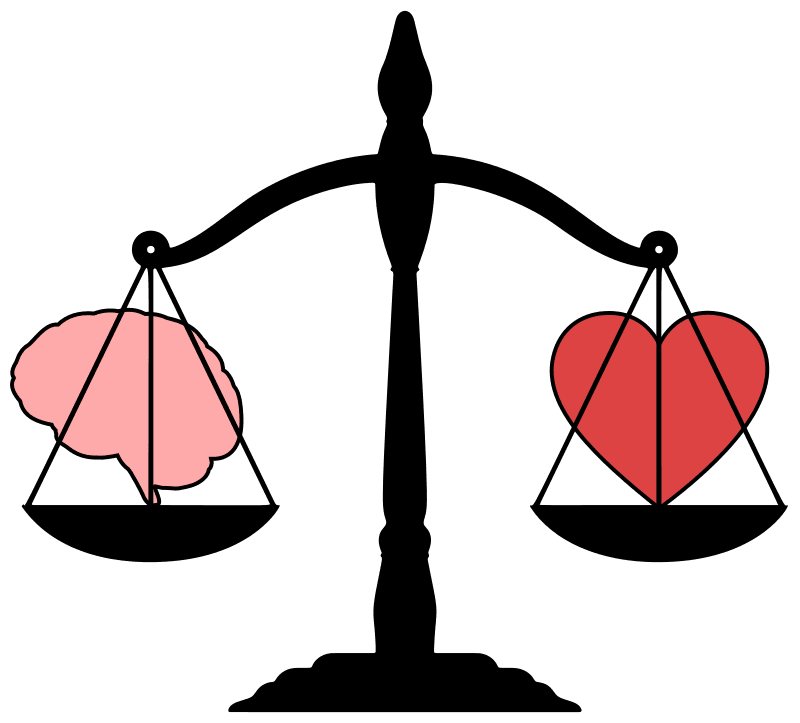
- What can you learn?
- What can you accomplish together?
- Can you do this and still keep your own life in balance?
In life you can never do everything or have everything, no matter how much you might like to do so. It is critically important to be able to say, “No.” Children who grow up not being allowed to say “No,” tend to have boundaries that are either too tight or too loose.  Too tight—and you may be closed off and miss opportunities for learning and for offering mutual support. Too loose—and you may quickly become overwhelmed doing for others what they should be doing for themselves. “Takers” can thrive finding those with loose or nonexistent boundaries.
Too tight—and you may be closed off and miss opportunities for learning and for offering mutual support. Too loose—and you may quickly become overwhelmed doing for others what they should be doing for themselves. “Takers” can thrive finding those with loose or nonexistent boundaries.
People will naturally come in and out of your life. If the conversation doesn’t flow easily or something feels off, it is okay to not pursue the relationship. If someone leaves you feeling drained or bad about yourself, it is okay to let that relationship fade away. Releasing negativity from your life opens space to let the new and good flow in.
—Marissa Vicario
5th
Supportive. Some attempt to obtain the needed support from one person who is perhaps directing or coordinating your care and treatment. It would be inappropriate to use them in lieu of a support network or even to try to get them to be part of your support network. altogether. This can create a burden too large for one person to carry. There have even been instances when the healthcare professional was forced to discontinue contact altogether because of a patient’s or client’s overwhelming neediness.
 While a support network does not take the place of medical care, it can be a valuable and even indispensable adjunct.If you have received a diagnosis that requires changes to your lifestyle—along with specific and even extended or rigorous treatment—ask up front if there is a support group available.
While a support network does not take the place of medical care, it can be a valuable and even indispensable adjunct.If you have received a diagnosis that requires changes to your lifestyle—along with specific and even extended or rigorous treatment—ask up front if there is a support group available.
| Build me up and I with you. For we are more one than two. Encourage, lift, and strengthen one another. For the positive energy spread to one will be felt by us all. For we are connected, one and all. ―Deborah Day |
Studies have shown many benefits for connecting with others in person or virtually via electronics who are going through similar struggles. Sometimes a new part-time opportunity (volunteer or paid) has come from meeting with a specific type of healthcare support group. Avoid being too “proud” to ask for help. By the same token, avoid trying to hang on to someone inappropriately or insist on offering help that is unwanted.
Either by kind words or supporting actions, the power of encouragement helps a person to rise on his feet and achieve his dreams. Be a person who encourages others, and who accepts and appreciates any encouragement he receives.
―Noora Ahmed Alsuwaidi
Reminder: Drink a glass of water. Listen to Chapter 12 of “Just the Facts.” If possible, walk around the room while you listen. At least walk in place.
6th
Advocacy. In the 21st Century, the explosion of technology can provide multiple options for information and advocacy. Located in Bethesda, Maryland, a US Department of Health and Human Services, the National Institutes of Health (NIH) is the largest biomedical research agency in the world. NIH has recognized the benefits to patients and families of a centralized information hub, especially in the case of less common or less well-known diseases. It can be frightening to discover that a family member has developed a “rare” disease or condition, about which little if anything is known by the individual or family. Some may need assistance with learning about the disease or condition itself, the latest research, treatment options available, and the long-term outcomes of each.
is the largest biomedical research agency in the world. NIH has recognized the benefits to patients and families of a centralized information hub, especially in the case of less common or less well-known diseases. It can be frightening to discover that a family member has developed a “rare” disease or condition, about which little if anything is known by the individual or family. Some may need assistance with learning about the disease or condition itself, the latest research, treatment options available, and the long-term outcomes of each. 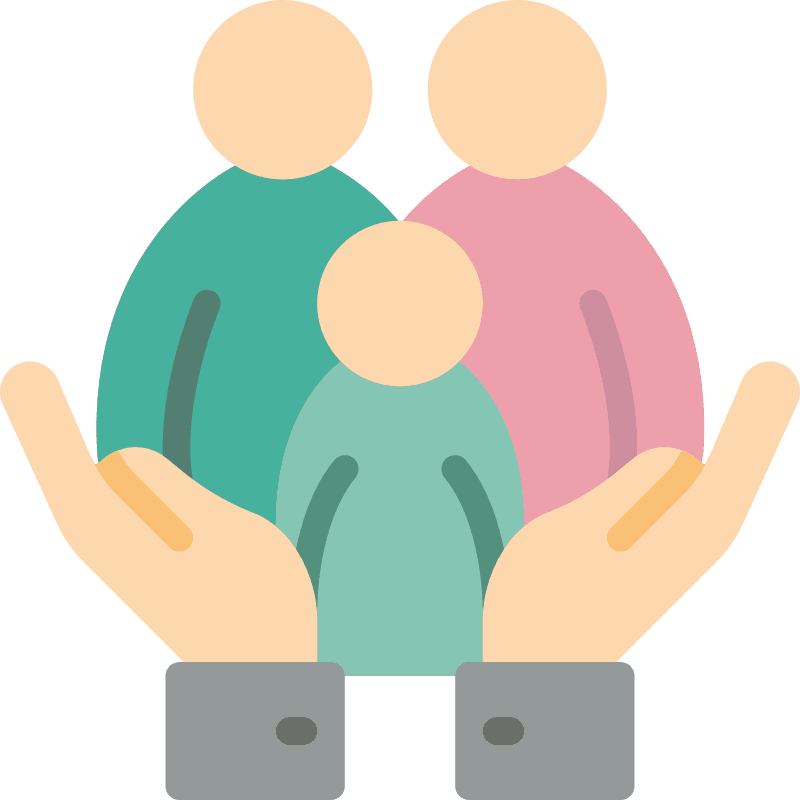 Some may be searching for financial aid resources. Others may need help in getting connected with those who are experiencing a similar condition and who, therefore, can assist them in understanding how the disease or condition may impact daily living, with helpful tips or strategies found to work better than others.
Some may be searching for financial aid resources. Others may need help in getting connected with those who are experiencing a similar condition and who, therefore, can assist them in understanding how the disease or condition may impact daily living, with helpful tips or strategies found to work better than others.
| There is genuine strength in verbal expressions of support. ―Richelle E. Goodrich |
Your doctor or healthcare practitioner, hospital, clinic, specific nonprofit organizations, or the NIH can often point you in the right direction to obtain the services you need. Sometimes there may be an in-person option near you. Other times you may be able to connect online via social media. There may be opportunities to meet in person at yearly conferences, summer camps, or in local meetings.  Some nonprofit advocacy groups maintain a registry of rare diseases to help disseminate information and advance research for a specific medical condition. Whether in person or online, an informed and legitimate support network can empower you to take charge of your health.
Some nonprofit advocacy groups maintain a registry of rare diseases to help disseminate information and advance research for a specific medical condition. Whether in person or online, an informed and legitimate support network can empower you to take charge of your health.
https://rarediseases.info.nih.gov/guides/pages/120/support-for-patients-and-families
Do your research when considering joining a support network. Mayo Clinic suggests being aware of potential red flags, such as:
 High fees to attend in person or online.
High fees to attend in person or online.
- Assurances of a complete cure.
- Strong inducements or pressure to purchase products or services from the group.
If the support group you try is not a good fit, try a different one or another format. 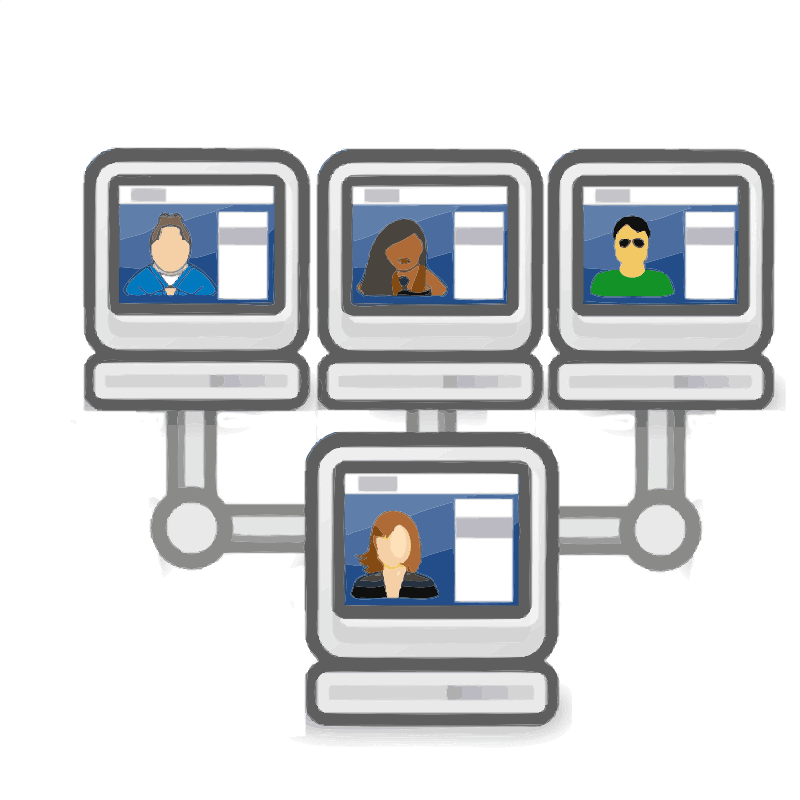 Talk with your doctor about counseling or other types of therapy. Be persistent as there is likely something available that may be just what you need to keep you on track.
Talk with your doctor about counseling or other types of therapy. Be persistent as there is likely something available that may be just what you need to keep you on track.
https://www.mayoclinic.org/healthy-lifestyle/stress-management/in-depth/support-groups/art-20044655
I suspect that the most basic and powerful way to connect to another person is to listen. Just listen. Perhaps the most important thing we ever give each other is our attention. And especially if it’s given from the heart. When people are talking, there is no need to do anything but receive them. Just take them in. Listen to what they are saying. Care about it. Most times caring about it is even more important than understanding it.
—Rachel Naomi Remen
7th
Growing Older. Everyone on Planet Earth is growing older. Avoid thinking that you have plenty of time and thus fail to be prudent in preparation.  Think ahead and do everything you can to ensure your support network has the information and tools they need to help you should the need arise. The Independence Center has defined a “personal support network” as a group of people who come together to help keep one another safe in an emergency. They can work with you to plan for a disaster and help you prepare emergency kits for your home or vehicle and to carry with you depending on your level of health and mobility. Their website and others contain tips to do this safely. Here are examples:
Think ahead and do everything you can to ensure your support network has the information and tools they need to help you should the need arise. The Independence Center has defined a “personal support network” as a group of people who come together to help keep one another safe in an emergency. They can work with you to plan for a disaster and help you prepare emergency kits for your home or vehicle and to carry with you depending on your level of health and mobility. Their website and others contain tips to do this safely. Here are examples:
- Aim for at least three people
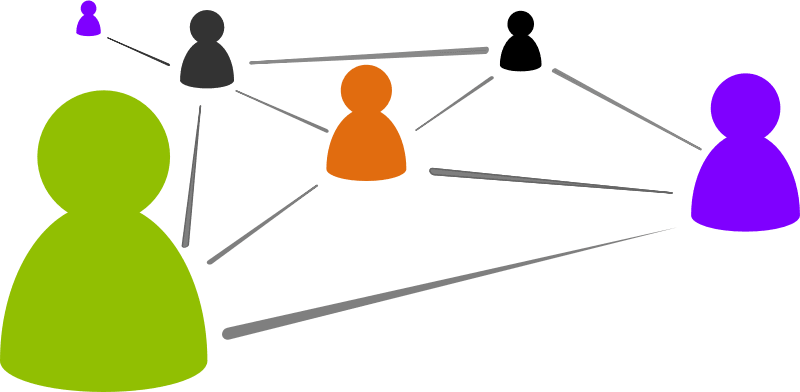 in your support network for each location where you spend the majority or a great deal of your time: home, work, school, volunteer sites, etc.
in your support network for each location where you spend the majority or a great deal of your time: home, work, school, volunteer sites, etc.
- Provide copies of your Emergency Information, Medical Information, and Disability-Related supply lists to members of your support network.
- Make sure your support network knows about special equipment of any type that you need and how to operate and move it safely.
- Revise your plan with your support network at least every six months, or as your situation changes.
- Be sure to let your support network know when you plan to travel.
You do not need followers, you need supporters. Followers wait for you to make it happen. Supporters see to it that you make it happen.
―Niedria Dionne Kenny
Reminder: Drink a glass of water. Watch the short Birds & Brains video. Stand and walk in place for at least part of the video.
Practical Applications
- Learn how to say “No,” mean it, and follow through on that decision. Some individuals gravitate toward those they perceive as succeeding. They hope to gain success or be viewed as special and important by aligning with someone they view as having “got it made.”
 They like to brag that they “had lunch with so-and-so,” or “just chatted with so-and-so.” This is where it is critical to be able to try to decipher motivation and know your boundaries. Go slowly, as people usually end up telling you about themselves and what they want even when they do not realize they are doing so.
They like to brag that they “had lunch with so-and-so,” or “just chatted with so-and-so.” This is where it is critical to be able to try to decipher motivation and know your boundaries. Go slowly, as people usually end up telling you about themselves and what they want even when they do not realize they are doing so. - As you learn and grow, understand that others change as well.
Sometimes in ways that align with your lifestyle; sometimes, not. You may find that some relationships may no longer be desirable. Not every connection is healthful and nurturing. Be wise enough to distinguish unhealthier types of relationships and disconnect. There is a concept called healthy selfishness. It reminds that you need to fill your own cup first.Your support network is the solid ground from which you can propel yourself upwards.
—Anna Barnes Or, as they say on the airlines “In the event of an unexpected landing, put on your own mask first and then help others with theirs.” If your cup is not full, you will have nothing of value to give away and, instead, will try to give from a well of unmet needs or become primarily a taker. Either way, it is rarely if ever effective or satisfying to either the giver or the receiver.
Or, as they say on the airlines “In the event of an unexpected landing, put on your own mask first and then help others with theirs.” If your cup is not full, you will have nothing of value to give away and, instead, will try to give from a well of unmet needs or become primarily a taker. Either way, it is rarely if ever effective or satisfying to either the giver or the receiver. - Regularly review the four or five individuals with whom you spend the most time. Identify how you are positively impacting each other.
 If you identify negativity or sense you are being taken advantage of, you may need to disconnect from any who are abusive or drag you down. That is the antithesis of a healthy and helpful support network. Since life is much shorter than most people realize, avoid squandering it with those who are primarily takers, complainers, manipulators, controllers, and/or criticizers. A balanced support network can help you better handle difficult situations, discover needed resources, and stay motivated.
If you identify negativity or sense you are being taken advantage of, you may need to disconnect from any who are abusive or drag you down. That is the antithesis of a healthy and helpful support network. Since life is much shorter than most people realize, avoid squandering it with those who are primarily takers, complainers, manipulators, controllers, and/or criticizers. A balanced support network can help you better handle difficult situations, discover needed resources, and stay motivated.
Two main categories of people are needed in your circle; those who give you the necessary support to accomplish your dreams and those who become beneficiaries of what you achieve. To become a better you, remember to be grateful to people who have contributed to making you who you are today.
―Israelmore Ayivor
Reminder: Drink a glass of water as you dig into this last section. How are you choosing to apply this information practically in your everyday life?
Think & Do
- Do you have a support network?
If no, consider building one. Begin with just 2-3 individuals. They may be biological family members, “family of choice,” or close friends.
(Realize that just because someone is “family” or has been a close “friend” does not necessarily mean they automatically get to be part of your support network, although you certainly can still have a relationship with them.) Identify those who have already shown that they are supportive and reciprocal. The past is the best predictor of the future. Nurture those relationships and strengthen the bond by choosing to spend more time with them. As challenges arise, you may want to add another individual or so who have experience in areas that are new to you, and so on.Instead of better glasses, your network gives you better eyes.
—Ronald Burt
- Are you part of another’s support network?
If yes, identify what you are contributing and what you are getting in return. A support network needs to be reciprocal. You give and you receive. If that is not happening, something may be out of balance with the individuals in the support network. If it seems you are being taken advantage of, you may need to reevaluate your participation. There is no shame in recognizing that something is not working well and course correcting.
You give and you receive. If that is not happening, something may be out of balance with the individuals in the support network. If it seems you are being taken advantage of, you may need to reevaluate your participation. There is no shame in recognizing that something is not working well and course correcting. - Is your participation in support networks helping you learn, grow, and become more adept at problem-solving?
The goal of a support network is to help each other build needed skills, and/or collaborate with others where you each contribute skills for a positive outcome for all involved or build a necessary bridge. A support network can also help brainstorm options in times of crisis.Do not burn bridges; you never know when you might need them.
―Omar Al Busaidy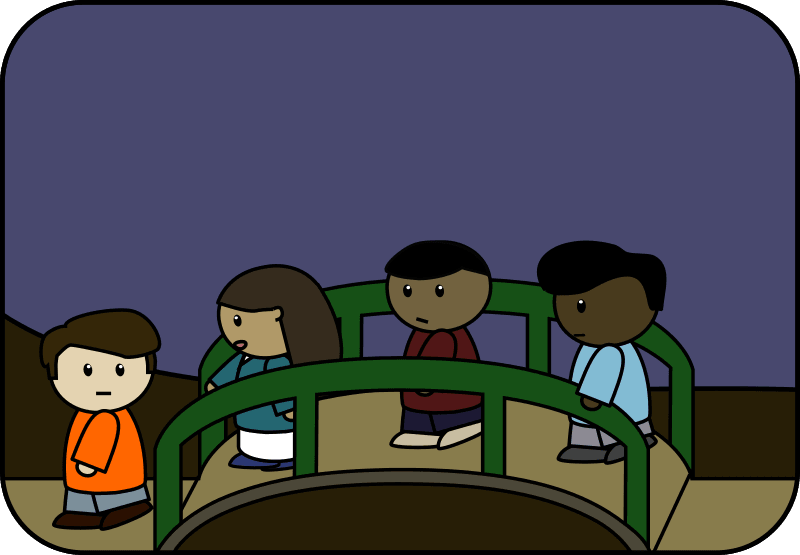 Be clear in your own mind the type and number of support networks you choose to become involved with and the specific reasons for doing so. As Jane Green puts it, “You don't have to wait for someone to treat you badly repeatedly. All it takes is once, and if they get away with it that once, if they know they can treat you like that, then it sets the pattern for the future.”
Be clear in your own mind the type and number of support networks you choose to become involved with and the specific reasons for doing so. As Jane Green puts it, “You don't have to wait for someone to treat you badly repeatedly. All it takes is once, and if they get away with it that once, if they know they can treat you like that, then it sets the pattern for the future.” - Is one or more of your support networks giving you negative outcomes?
Remember, there are those who desire or expect a support network to “take care of them,” doing what they could and should be doing for themselves.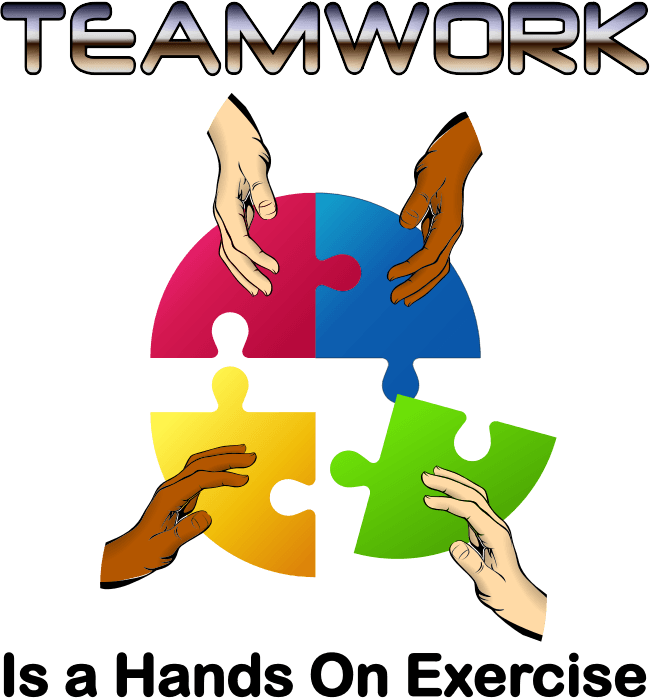 Support networks are not designed to provide unpaid volunteer work for one person’s benefit. They need to be reciprocal, the members helping each other practically and emotionally in times of difficulty—offering what the individual in crisis is unable to do or even see clearly for themselves. Disconnect from networks that are giving you negative outcomes. Then, be very careful of the reasons for joining others.
Support networks are not designed to provide unpaid volunteer work for one person’s benefit. They need to be reciprocal, the members helping each other practically and emotionally in times of difficulty—offering what the individual in crisis is unable to do or even see clearly for themselves. Disconnect from networks that are giving you negative outcomes. Then, be very careful of the reasons for joining others.
It can be proven that wounded people wound others. Walk circumspectly among wounded people, their injuries are deeply submerged in their brain's amygdala, and without the time-tested practice of emotional intelligence, you might find yourself scarred by association. Give your associations time to reveal their emotional intelligence or lack thereof.
—Tracey Bond
Slow & Steady Wins
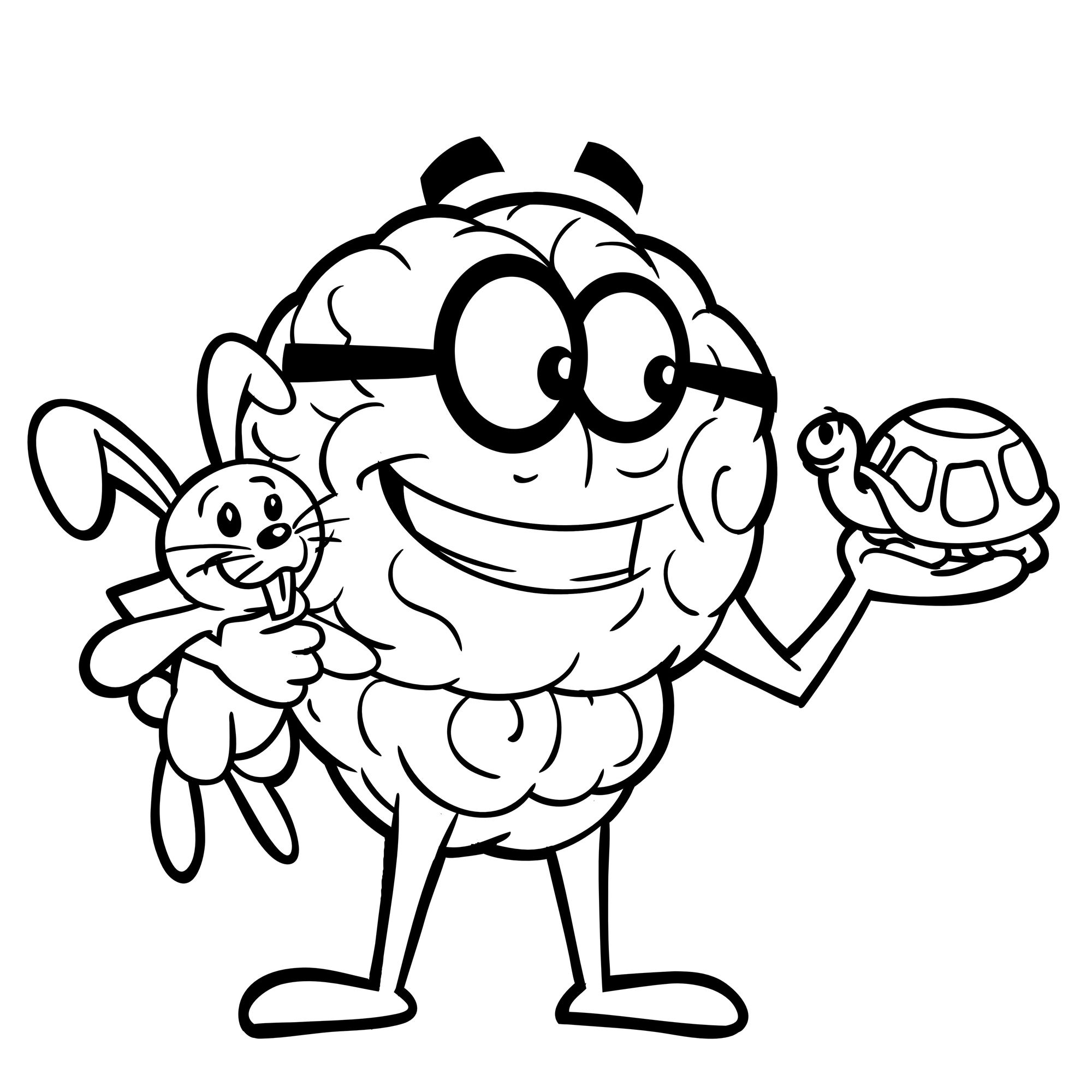 Concentrate on Module 10 during this entire week. Do your Daily Goals; reread the sections; relisten to the Videos and audiobook excerpts. It takes the average adult four times through to really absorb the material and turn it into a new behavior. If you want positive results, rushing through the material just because you can, may not provide the desired outcome.
Concentrate on Module 10 during this entire week. Do your Daily Goals; reread the sections; relisten to the Videos and audiobook excerpts. It takes the average adult four times through to really absorb the material and turn it into a new behavior. If you want positive results, rushing through the material just because you can, may not provide the desired outcome.
Review previous modules to remind yourself of key points. Practice the strategies you have learned and developed thus far. Get plenty of sleep so your brain has time to ‘consolidate’ —transfer—what you are learning from short term to long term memory. Drink plenty of water to keep your brain hydrated and able to generate the mental energy you need. Your thinking cells—neurons—are estimated to be about 85 percent water. A well-hydrated ‘brain central’ will likely play a much wiser and more practical part in creating a support network.
It is becoming very clear how each LLM component helps to reinforce the whole. No component “is an island.” Each is part of a Longevity Lifestyle. Develop a support network of happy, positive people who challenge each other to “be your best.” The energy created will uplift and energize you.
—Arlene R. Taylor, PhD
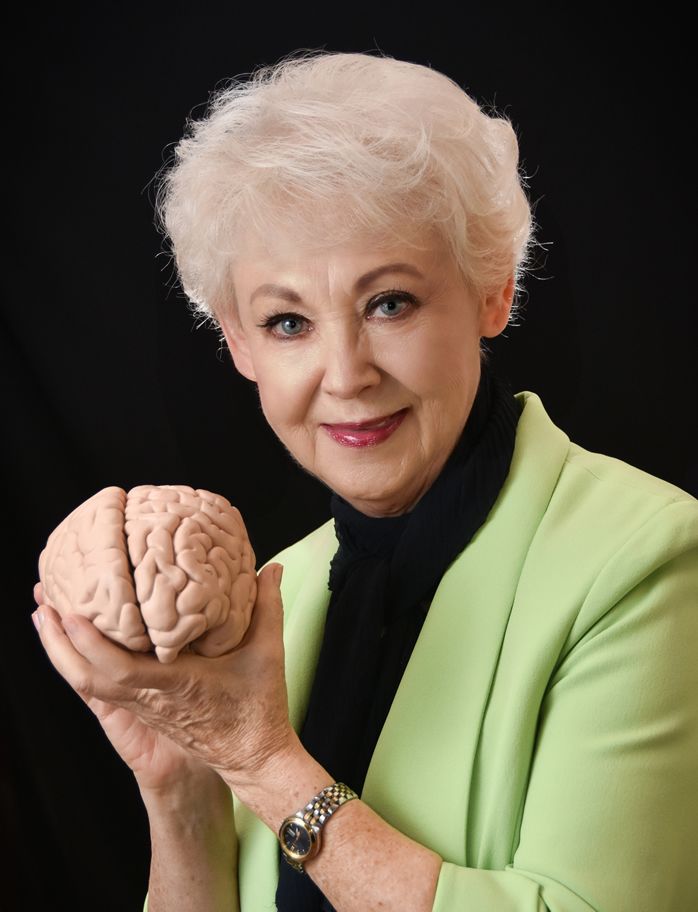 See you next week for LLM Online Module 11
See you next week for LLM Online Module 11
Topic:
Stressor Management—Live the 20:80 Rule
Lesson List
- Module 2 – Emotional Intelligence (EQ)
- Module 2 – To Begin
- Module 2 – Slow & Steady Wins
- Module 1 – Mindset and Self-talk
- Module 1 – To Begin
- Module 1 – Slow & Steady Wins
- Module 1 – Mindset (educational video)
- Module 1 – Birds & Brains (video)
- Module 1 – Just the Facts - Chapter 1 (audio)
- Module 1 – Just the Facts - Chapter 2 (audio)
- Module 2 – EQ (Emotional Intelligence) (video)
- Module 2 – Just the Facts - Chapter 3 (audio)
- Module 4 – Sleep
- Module 4 – To Begin
- Module 4 – Slow & Steady Wins
- Module 3 – Mental & Physical Exercise
- Module 3 – To Begin
- Module 3 – Slow & Steady Wins
- Module 5 – Water
- Module 5 – To Begin
- Module 5 – Slow & Steady Wins
- Module 6 – Safety
- Module 6 – To Begin
- Module 6 – Slow & Steady Wins
- Module 7 – Sunlight
- Module 7 – To Begin
- Module 7 – Slow & Steady Wins
- Module 8 – Nutrition
- Module 8 – To Begin
- Module 8 – Slow & Steady Wins
- Module 10 – Support Network
- Module 10 – To Begin
- Module 11 – Stressors
- Module 10 – Slow & Steady Wins
- Module 9 – Laughter
- Module 9 – To Begin
- Module 11 – To Begin
- Module 9 – Slow & Steady Wins
- Module 11 – Slow & Steady Wins
- Module 12 – Life Satisfaction
- Module 12 – To Begin
- Module 12 – Slow & Steady Wins
- Module 2 — Birds & Brains, No. 2 - EQ (video)
- Module 3 – Exercise (educational video)
- Module 3 – Just the Facts - Chapter 4 (audio)
- Module 3 – Just the Facts - Chapter 5 (audio)
- Module 3 – Birds & Brains, No. 3 - Exercise (video)
- Module 4—Just the Facts - Ch. 6 (audio)
- Module 4—Birds & Brains #4 (video)
- Module 4—Sleep (educational video)
- Module 5—Water (educational video)
- Module 5 – Just the Facts - Chapter 7 (audio)
- Module 5 — Birds & Brains #5 (video)
- Module 6 – Safety (educational video)
- Module 6 – Just the Facts - Chapter 8 (audio)
- Module 7 – Birds & Brains #7 (video)
- Module 8 – Just the Facts - Chapter 10 (audio)
- Module 8 – Nutrition (educational video)
- Module 8 – Birds & Brains #8 (video)
- Module 7 – Just the Facts - Chapter 9 (audio)
- Module 6 — Birds & Brains #6 (video)
- Module 7 – Sunlight (educational video)
- Module 9 – Laughter (educational video)
- Module 9 – Just the Facts - Chapter 11 (audio)
- Module 9 – Birds & Brains #9 (video)
- Module 10 – Support Systems (educational video)
- Module 10 – Just the Facts - Chapter 12 (audio)
- Module 10 – Birds & Brains, No. 10 - Support Systems (video)
- Module 11 – Stressors (educational video)
- Module 11 – Just the Facts - Chapter 13 (audio)
- Module 11 – Birds & Brains No. 11 - Stressors (video)
- More Information
- Module 12 – Life Satisfaction (educational video)
- Module 12 – Birds & Brains, No. 12 - Life Satisfaction (video)
- Module 12 – Just the Facts - Chapter 14 (audio)
Teachers Info
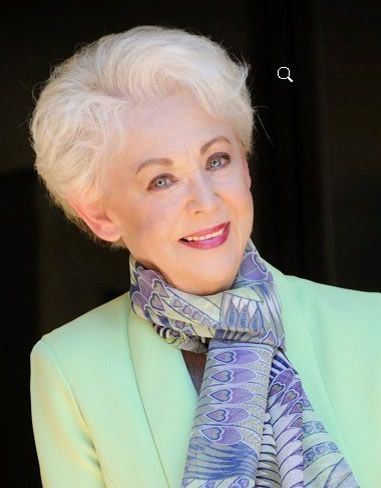
Arlene R. Taylor, PhD
- Specialist:
- Website: https://www.arlenetaylor.org/
-
Arlene R. Taylor PhD, a leading speaker on brain function, is sometimes referred to as the brain guru. She specializes in simplifying this complex topic, with the goal of helping individuals understand more about the brain in general and their own in particular. She delights in helping others learn how to thrive by...

